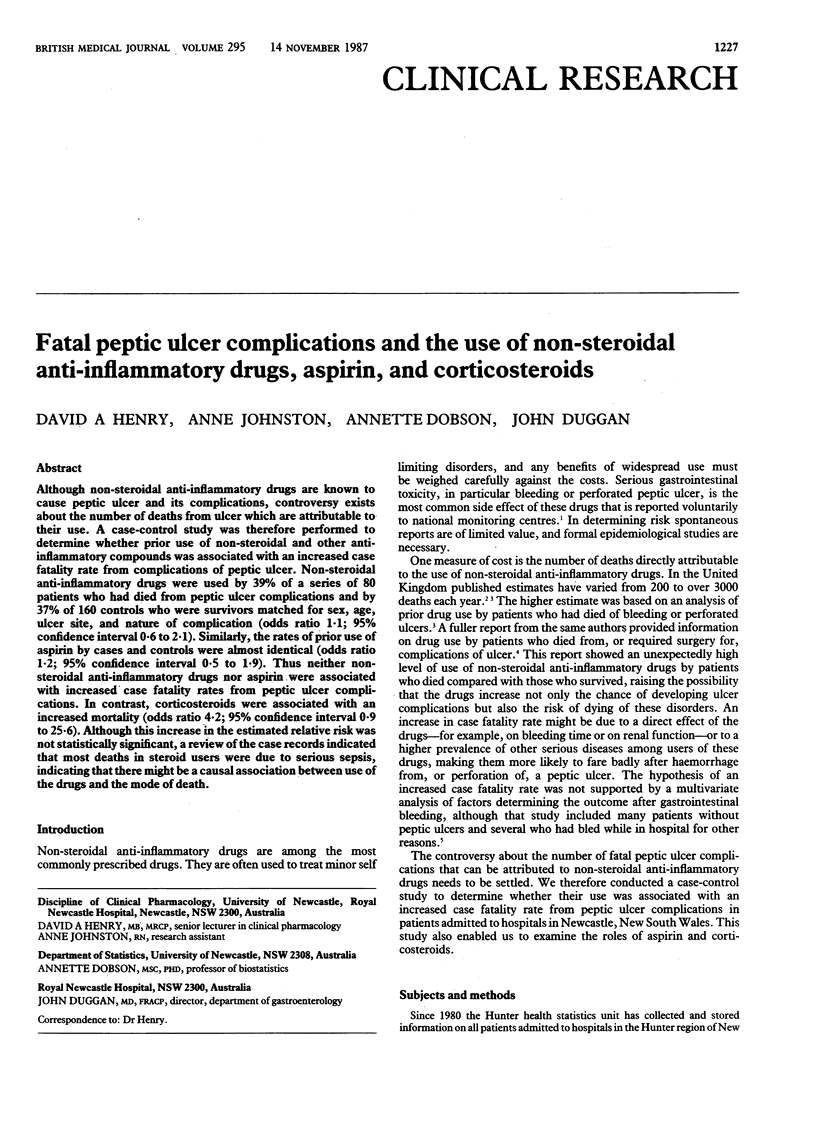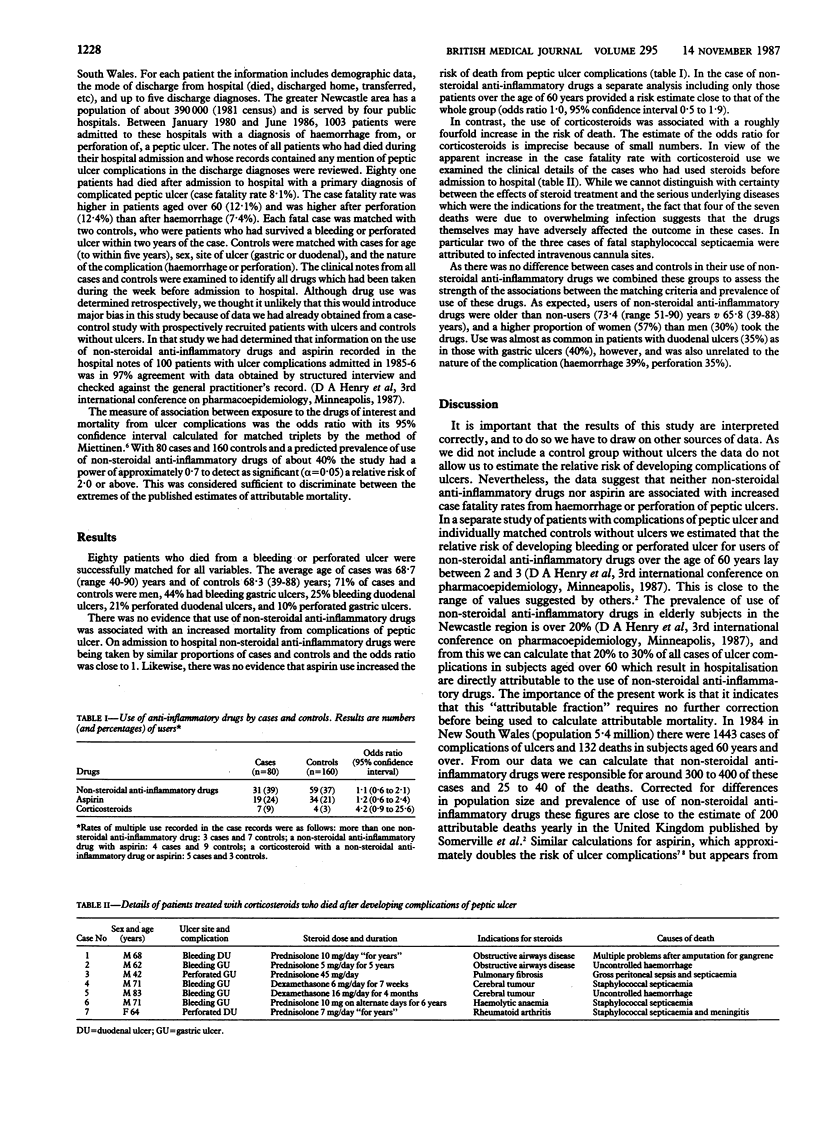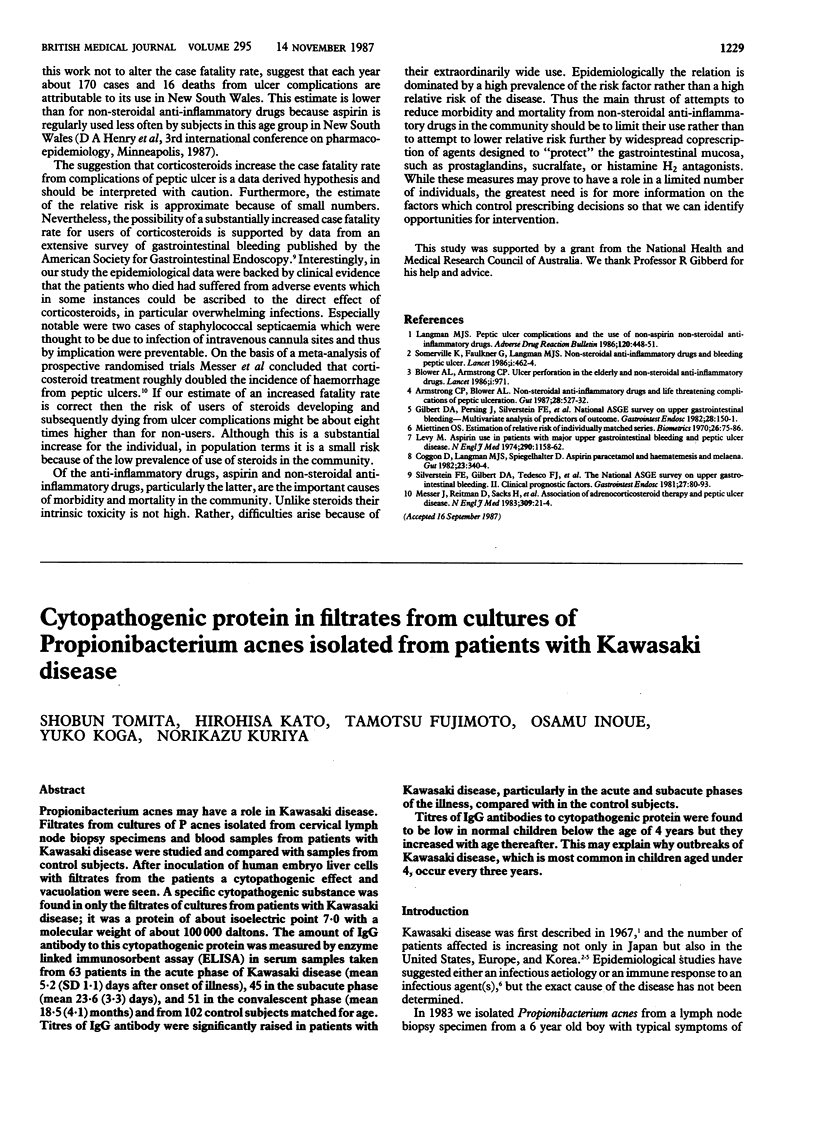Abstract
Although non-steroidal anti-inflammatory drugs are known to cause peptic ulcer and its complications, controversy exists about the number of deaths from ulcer which are attributable to their use. A case-control study was therefore performed to determine whether prior use of non-steroidal and other anti-inflammatory compounds was associated with an increased case fatality rate from complications of peptic ulcer. Non-steroidal anti-inflammatory drugs were used by 39% of a series of 80 patients who had died from peptic ulcer complications and by 37% of 160 controls who were survivors matched for sex, age, ulcer site, and nature of complication (odds ratio 1.1; 95% confidence interval 0.6 to 2.1). Similarly, the rates of prior use of aspirin by cases and controls were almost identical (odds ratio 1.2; 95% confidence interval 0.5 to 1.9). Thus neither nonsteroidal anti-inflammatory drugs nor aspirin were associated with increased case fatality rates from peptic ulcer complications. In contrast, corticosteroids were associated with an increased mortality (odds ratio 4.2; 95% confidence interval 0.9 to 25.6). Although this increase in the estimated relative risk was not statistically significant, a review of the case records indicated that most deaths in steroid users were due to serious sepsis, indicating that there might be a causal association between use of the drugs and the mode of death.
Full text
PDF


Selected References
These references are in PubMed. This may not be the complete list of references from this article.
- Armstrong C. P., Blower A. L. Non-steroidal anti-inflammatory drugs and life threatening complications of peptic ulceration. Gut. 1987 May;28(5):527–532. doi: 10.1136/gut.28.5.527. [DOI] [PMC free article] [PubMed] [Google Scholar]
- Coggon D., Langman M. J., Spiegelhalter D. Aspirin, paracetamol, and haematemesis and melaena. Gut. 1982 Apr;23(4):340–344. doi: 10.1136/gut.23.4.340. [DOI] [PMC free article] [PubMed] [Google Scholar]
- Levy M. Aspirin use in patients with major upper gastrointestinal bleeding and peptic-ulcer disease. A report from the Boston Collaborative Drug Surveillance Program, Boston University Medical Center. N Engl J Med. 1974 May 23;290(21):1158–1162. doi: 10.1056/NEJM197405232902102. [DOI] [PubMed] [Google Scholar]
- Miettinen O. S. Estimation of relative risk from individually matched series. Biometrics. 1970 Mar;26(1):75–86. [PubMed] [Google Scholar]
- Silverstein F. E., Gilbert D. A., Tedesco F. J., Buenger N. K., Persing J. The national ASGE survey on upper gastrointestinal bleeding. II. Clinical prognostic factors. Gastrointest Endosc. 1981 May;27(2):80–93. doi: 10.1016/s0016-5107(81)73156-0. [DOI] [PubMed] [Google Scholar]
- Ulcer perforation in the elderly and non-steroidal anti-inflammatory drugs. Lancet. 1986 Apr 26;1(8487):971–972. [PubMed] [Google Scholar]


